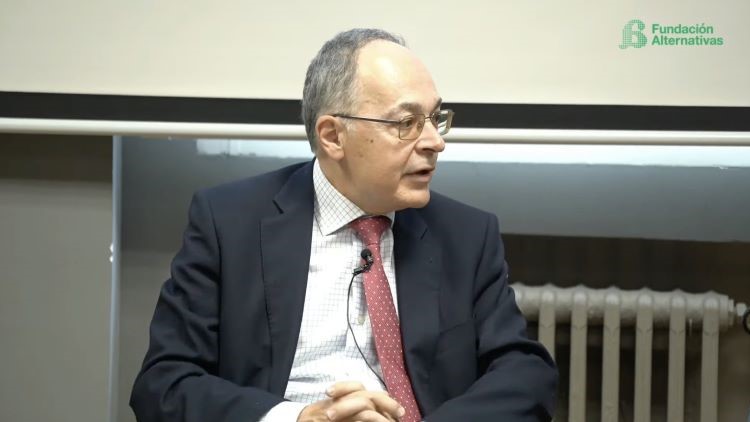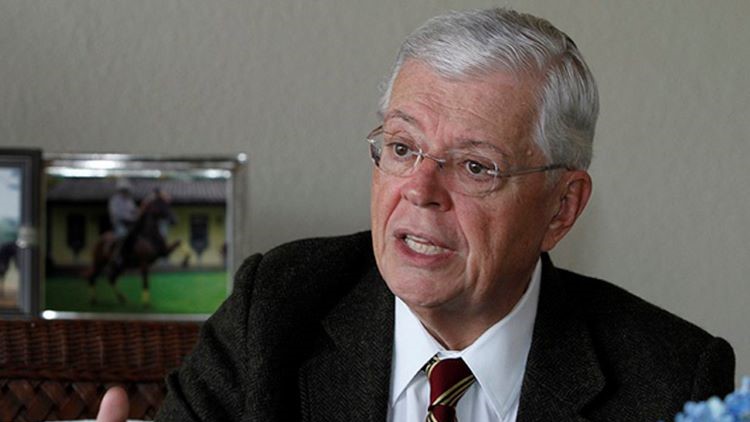The Diplomat
The State Secretary for the European Union, Pascual Navarro, assured yesterday that the European agenda “does not stop” and, therefore, the early general elections in Spain, country that holds the rotating Presidency of the Council of the EU, “will not prevent the European institutions to continue advancing in their dossiers and agenda”.
Navarro made these statements during his intervention in the debate The challenges of the European Presidency in Spain, organized by the Alternativas Foundation to address the great challenges of the Spanish Presidency, and in which Diego López Garrido, executive vice-president of the Alternativas Foundation, as moderator, and the analyst Mercedes Guinea also took part.
According to the State Secretary, “the European Union is not standing still, it is moving at full speed”. “As we all know, the EU will take a break with the elections to the European Parliament next year, with the formation of the new Commission and with the presentation of the Work Program”, but, during the rest of the time, the agenda “goes at full pace and at the moment it is very accelerated due to the crises”, especially the one in Ukraine.
In this context, he warned, there are a large “number of issues” on which progress must be made between now and “the end of the Belgian Presidency”. “There is a large number of issues on the table on which progress must be made” and the “Strategic Agenda for the next five years must be closed at the European Council in June” 2024, he added. In this task, he said, the Spanish Presidency will serve to “work” on the main debates on “institutional issues”, such as “enlargement, the future of the internal market and its competitiveness, and the political future of the Union”.
In addition, according to Navarro, both the President of the Council, Charles Michel, and the President of the Commission, Ursula Von del Leyen, have “confirmed” the agenda for the coming months and its development and have urged the Spanish Presidency to “go deeper into the strategic agenda, the economic situation, the migratory problem and the review of the financial framework to optimize support for Ukraine”. For all these reasons, he assured that not even the elections of July 23 “will prevent the European institutions from continuing to make progress on their dossiers and their agenda”.
Green agenda, migration, economic governance and Ukraine
According to Navarro, the current Commission defends a “green, digital and social agenda, despite ideological particularities”, and has asked the Spanish Presidency to “complete” it. However, it is “evident” that a number of Member States and political groups disagree with this agenda and there are doubts as to whether “the program of this Commission will remain in force after the European elections”, especially with regard to “environmental regulation”, but this is the Commission’s program and the “commitment” of the Spanish Presidency is to continue with the agenda and “try to get the proposals approved”, continued the State Secretary.
Another example of these discrepancies is the migratory issue, regarding which “there is an agreement between the Council and the Parliament on a road map to conclude the Pact (on Migration and Asylum) before the end of the European Legislature”. According to Navarro, there is a “great willingness to move forward, and if we do not conclude it, it will be concluded during the Belgian Presidency, but the problem is that these regulations require a qualified majority and Poland and Hungary have demanded that they be approved by consensus, which would be illegal because it would alter the treaties“.
Regarding economic governance and fiscal rules, the State Secretary believes that the Commission’s proposal is quite “balanced and most Member States are in favor”, but some partners, such as Germany, are putting forward a different position from the Commission’s proposal with an “excessive demand for annual deficit reduction”. It is a “difficult” situation, but everyone is aware that “a conclusion” has to be “reached” before the end of 2023, he admitted.
On Ukraine, Pascual Navarro stressed that it continues to be “the big issue on the European agenda”, because it influences all “economic and institutional” matters. Likewise, he assured that, at this point, “nobody is discussing the enlargement” or the various dates that are being considered, but rather “how we are going to prepare Ukraine and the rest so that it can be carried out, as well as the EU itself to assimilate the entry”. Nobody is talking about institutional reform or the reform of the treaties, but about “what we have to do to adapt to the enlargement, since it implies talking about the budget, agricultural and cohesion policies, the internal market, since it is not only about integrating Ukraine into the free movement of goods but also of workers, capital and services; and the issue of the rule of law”, he stated. “In the Spanish Presidency we are going to devote a lot of time and effort to it”, he assured.







